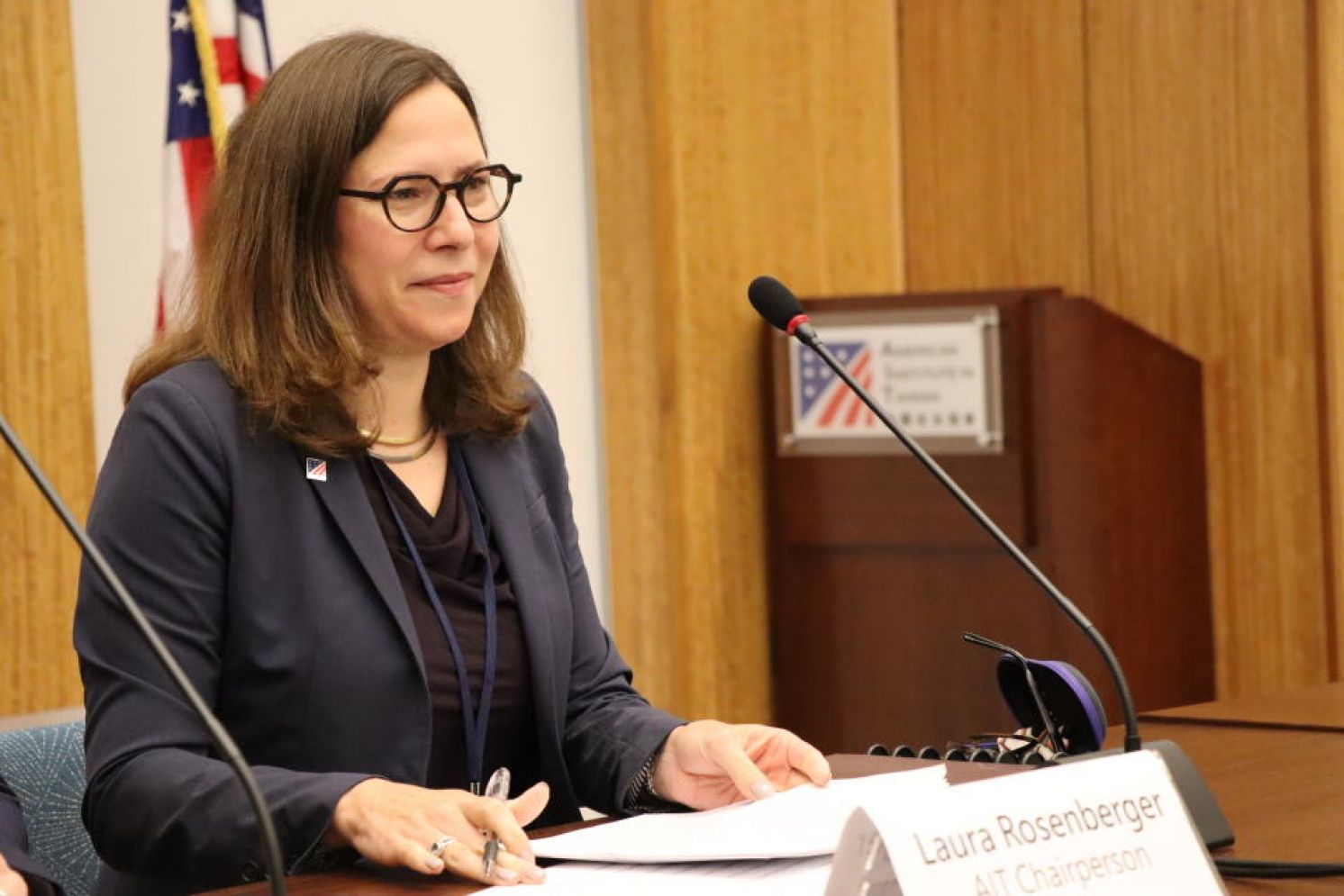
"Interview" Trip by Rosenberger
Want Daily Editorial, June 7, 2023
Right after her April visit, Chairman Laura Rosenberger of the American Institute in Taiwan (AIT) visited Taiwan again a few days ago. At the press briefing in the AIT office in Taipei, she indicated that she was pleased to engage with leaders from across Taiwan's political spectrum on her April visit. This time she looks forward to doing more of that and spending time with the declared presidential candidates in Taiwan. She further reiterated that the United States will not take sides and will cooperate with whichever leader Taiwan’s voters elect in 2024.
Ms. Rosenberger's comments show that the United States does not have a "pocket candidate" yet and that this visit is meant to interview the three candidates so the United States can determine who is the most ideal successor to President Tsai Ing-wen.
In terms of American strategic interests in the Indo-Pacific region, Taiwan only plays a small part. Consequently, the United States must factor in not only the issue of Taiwan Independence but more importantly, the structural factors, such as long-term U.S.-China strategic competition. The United States may oppose the use of force by China, but it is unable to stop the peaceful unification by the two sides of the Taiwan Strait. So, for the United States, the most favored presidential candidate is the one who can safeguard a dialogue between the two sides of the Strait under the framework of "no unification, no independence."
In the 20th Shangri-La Dialogue recently held in Singapore, both U.S. Secretary of Defense Lloyd Austin and mainland Chinese Minister of National Defense Li Shangfu criticized each other with very strong words in their respective speeches. The United States wants to maintain the established order in the Indo-Pacific Region, while mainland China blames the United States for disrupting regional security.
The United States is eager to engage with mainland China in a dialogue, while China's Li is only willing to shake hands with Secretary Austin and refuses to sit down for talks. This has led to an anxiety-ridden administration of President Joe Biden.
Given the difficult relations between the United States and China, what the U.S. wants is a Taiwan President that is "obedient,” not one that "creates troubles."
In this respect, the United States may feel worried about the Democratic Progressive Party's (DPP) presidential candidate William Lai, who calls himself " a pragmatic practitioner of Taiwan independence." To dispel American doubts, Lai's narrative on Taiwan's role in cross-strait relations and the Indo-Pacific region needs to be clear and precise.
As for the Kuomintang's (KMT) candidate, Hou Yu-ih, he is regarded as inexperienced in American and cross-strait policies. But given the KMT has resumed channels of communication with the United States and that the communications between KMT and high-ranking mainland Chinese officials are going very smoothly, Mr. Hou's credibility on cross-strait issues is much higher than that of Mr. Lai. Therefore, under Mr. Hou's rule, there won't be any sudden and unintended blasts on the sensitive issue of unification and independence.
For Ko Wen-je, candidate of Taiwan People's Party (TPP), although he claimed to be the best communicator with the United States and China, and his election campaign looks promising to the United States, we should not ignore the fact that TPP is a one-man party. Mr. Ko may "make waves" in the campaign, but how is he going to run the country once elected? He may not be able to select the presidents of various Yuans at the first echelon in the government, let alone the ministers and numerous heads of bureaus and state-owned enterprises at the second and third levels.
In the interview by Ms. Rosenberger, the key for Mr. Ko to garner confidence from the United States is to present credible narratives on foreign and cross-strait policies and viable plans for governance.
At the 20th Shangri-La Dialogue, mainland Chinese Ministry of National Defense Li Shangfu reiterated that "if anyone dares to separate Taiwan from the mainland, the People’s Liberation Army (PLA) will not hesitate to safeguard the national sovereignty and territorial integrity against any opponents at any price."
With the mainland’s repeated warnings against Taiwan independence and interventions from outside forces, to maintain peace and stability in the Taiwan Strait, Ms. Rosenberger will have to take a careful consideration as to whether the United States will support the "favored grandson of Taiwan independence," William Lai, in her interviews with Taiwan's presidential candidates.
From: https://www.chinatimes.com/opinion/20230607004465-262102